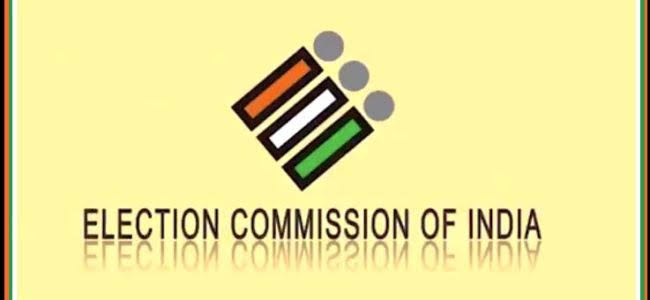Srinagar : In its objective to ensure free, fair and transparent electioneering, the Election Commission of India has instructed all registered political parties, on National and State level, and their respective representatives to ensure responsible and ethical use of social media platforms amid prevalence of Model Code of Conduct.
The ECI in a dispatch to the President/General Secretary/Chairperson of All National/State recognized Political Parties, remarked that the Commission’s “attention has been drawn to certain violations of MCC and the extant legal provisions by Political Parties /their representatives while using social media for election campaigning, which need to be regulated in the interest of transparency, ethical campaigning and level playing field during the elections. The use of such manipulated, distorted, edited content on social media platforms has the potential to wrongfully sway voter opinions, deepen societal divisions, and erode trust in the electioneering process by attacking laid out instrumentalities of the electoral steps in terms of means and material. Further, the scale of spread of such misinformation has been observed to be dangerously unrestrained due to the availability of the option of “forwarding/re-sharing/ re-posting/ re-tweeting” on social media platforms.”
The Commission reminded the parties of ‘detailed guidelines dated 25.10.2013 inter alia providing that provisions of Model Code of Conduct and related instructions of the Commission shall apply to the content being posted on the internet, including social media by candidates and political parties.’
“The Election Commission of India has a constitutional duty to conduct free and fair elections and to ensure level playing field among the stakeholders. Accordingly, taking cognizance of the directions of the Hon’ble Delhi High Court in Writ Petition (C) (PIL) No. 6186 of 2024 and possibility of disturbing the level playing field by the Political Parties, their representatives and star campaigners by using “deep fakes”, AI generated distorted content which spread fake information/misinformation/disinformation and distortions of facts, the ECI brings to the specific notice of political parties of the provisions of the Model Code of Conduct, the Information Technology Act, 2000 and the Information Technology (Intermediary Guidelines and Digital Media Ethics Code) Rules 2021, the Indian Penal Code and framework of the twin acts namely the Representation of People Act, 1950 and 1951 that govern the regulatory framework and underline the emphasis for the same,” reads the dispatch.
The ECI has threadbare informed the political parties about the regulatory framework into the immediate matter.
In its objective to ensure the proper implementation of guidelines, the ECI has directed the political parties; not to use social media platforms to disseminate any misinformation or information which is patently false, untrue or misleading in nature and those that impersonate another person, including any information which is synthetically created or generated or modified in a manner that such information reasonably appears to be authentic or true while in actuality dishonestly or fraudulently deceive any person who receives such information.
“Not impersonate another person, including political parties or their representatives on a social media platform; and among other things; Not post or promote content which is derogatory towards women or repugnant to the honour and dignity of women; and Not use social media platforms to carry any content which goes against the Commission’s advisories prohibiting the use of children in any political campaigning; and Not portray violence, harm or harassment of animals in any of their content on social media platforms.”
“Not allow their respective social media handles to publish and circulate deepfake audios/videos which violate the provisions of extant rules and regulations,” the dispatch reads.
“Whenever such deep fake audios/videos, come to the notice of political parties, they shall immediately take down the post but maximum within a period of 3 hours and also identify and warn the responsible person within the party; Report the presence of any unlawful information and fake user accounts, looking alike their official handles on a social media platform, to the concerned social media platform forthwith.”
“In case of continued presence of such unlawful information or fake user account after reporting to social media platforms, to approach the Grievance Appellate Committee (GAC) under Rule 3A of the Information Technology (Intermediary Guidelines and Digital Media Ethics Code) Rules, 2021,” reads the dispatch.
“The Commission has been repeatedly directing the political parties and their leaders to maintain decorum and utmost restraint in public campaigning. The Commission once again directs with emphasis that all the political parties and their leaders must refrain from using in their campaigning any technological/ AI based tools which distorts information or spreads misinformation, which resultantly lowers the standards of electioneering,” reads the dispatch further. (GNS)







